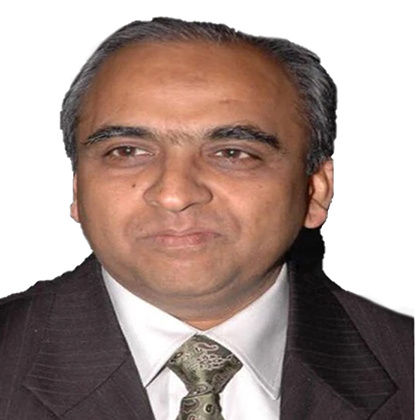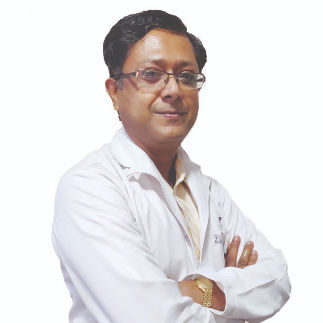How To Increase EF Of Heart?
Concerned about low heart ejection fraction (EF)? Understand potential strategies to improve EF through lifestyle changes and medical treatments.

Written by Dr.Sonia Bhatt
Last updated on 16th Jul, 2025

Introduction
Your heart is one of the hardest working organs in your body, pumping blood to keep you alive and active. One important measure of heart health is the Ejection Fraction (EF), which tells how well your heart pumps blood with each beat. A low EF can indicate heart problems, but the good news is that there are ways to improve it.
In this article, we’ll explain what EF means, why it matters, and simple steps you can take to boost your heart’s efficiency.
What Is Ejection Fraction (EF)?
Ejection Fraction is a percentage that measures how much blood your heart pumps out with each beat. A healthy heart typically has an EF between 50% and 70%. If your EF is below 40%, it may indicate heart failure or weakened heart muscles (a condition called cardiomyopathy).
Types of EF:
Normal EF (50-70%): Indicates that your heart's pumping function is within the typical range.
Borderline EF (41-49%): Suggests a slightly reduced pumping ability that often requires monitoring by a healthcare professional.
Low EF (40% or below): Signifies that the heart is not pumping blood as effectively as it should, typically requiring medical attention and management.
Why Does EF Matter?
A low EF means your heart isn’t pumping enough blood to meet your body’s needs. This can lead to:
Fatigue and weakness
Shortness of breath
Swelling in legs and feet (edema)
Increased risk of heart failure
The good news? With the right lifestyle changes and medical care, you can improve your EF and strengthen your heart.
How to Increase Your EF Naturally
Tips on how to potentially increase the ejection fraction (EF) of the heart:
Follow a Heart-Healthy Diet: Focus on fruits, vegetables, whole grains, lean proteins, and healthy fats while limiting processed foods, sugary drinks, excessive alcohol, and fried foods to support heart efficiency.
Exercise Regularly: Engage in regular physical activity like walking, swimming, or light strength training (with doctor's approval) to strengthen the heart muscle.
Manage Stress: Practice stress-reducing techniques such as deep breathing, meditation, and aim for 7-8 hours of sleep nightly to lower blood pressure and support heart health.
Quit Smoking & Limit Alcohol: Eliminate smoking to prevent blood vessel damage and limit alcohol intake to recommended amounts to avoid weakening the heart muscle.
Stay Hydrated, But Watch Fluid Intake: Drink adequate water, but follow your doctor's guidance on fluid restriction if you have heart failure to prevent swelling.
Take Prescribed Medications: Adhere to your doctor's prescribed medications for blood pressure, heart strain, and potentially improving EF over time.
Consult Top Specialist for Custromised Usage Tips
When to See a Doctor?
If you experience:
✔️ Extreme fatigue
✔️ Shortness of breath (even at rest)
✔️ Swollen legs or sudden weight gain
✔️ Irregular heartbeat
Consult a cardiologist immediately. Early treatment can prevent further damage.
Can EF Be Improved Permanently?
Yes! Many people see improvement with:
✔️ Lifestyle changes (diet, exercise)
✔️ Medications
✔️ Regular monitoring
In severe cases, procedures like pacemakers or surgery may be needed, but lifestyle changes remain key.
Conclusion
Improving your EF takes time, but small steps make a big difference. Eat well, stay active, manage stress, and follow your doctor’s advice. Your heart is a powerful muscle—give it the care it deserves! Need Help? If you’re concerned about your heart health, consult a specialist on Apollo 24|7. Book a heart checkup today and take the first step toward a stronger heart!
Consult Top Cardiologist
Consult Top Specialist for Custromised Usage Tips

Dr. Sarita Rao
Cardiologist
17 Years • MBBS, DM (Cardiology)
Indore
Apollo Hospitals Vijay Nagar, Indore

Dr. Aritra Konar
Cardiologist
10 Years • Consultant Interventional Cardiologist, DM (Cardiology), MD (Medicine), MBBS
Kolkata
Apollo Multispeciality Hospitals , Kolkata, Kolkata

Dr. Ramakrishna Janapati
Cardiologist
11 Years • MBBS, MD (Gen. Med.), DM (Cardiology)
Hyderabad
Apollo Hospitals Jubilee Hills, Hyderabad
(50+ Patients)

Dr. Sunil Modi
Cardiologist
38 Years • MBBS,MD (Med.),DM (Cardio)
Delhi
Apollo Hospitals Indraprastha, Delhi
(25+ Patients)

Dr. Subir Ghosh
Cardiologist
16 Years • MBBS; MD(MED); DM(Cardio)
Ahmedabad
Apollo Hospitals Gandhinagar, Ahmedabad
Consult Top Cardiologist

Dr. Sarita Rao
Cardiologist
17 Years • MBBS, DM (Cardiology)
Indore
Apollo Hospitals Vijay Nagar, Indore

Dr. Aritra Konar
Cardiologist
10 Years • Consultant Interventional Cardiologist, DM (Cardiology), MD (Medicine), MBBS
Kolkata
Apollo Multispeciality Hospitals , Kolkata, Kolkata

Dr. Ramakrishna Janapati
Cardiologist
11 Years • MBBS, MD (Gen. Med.), DM (Cardiology)
Hyderabad
Apollo Hospitals Jubilee Hills, Hyderabad
(50+ Patients)

Dr. Sunil Modi
Cardiologist
38 Years • MBBS,MD (Med.),DM (Cardio)
Delhi
Apollo Hospitals Indraprastha, Delhi
(25+ Patients)

Dr. Subir Ghosh
Cardiologist
16 Years • MBBS; MD(MED); DM(Cardio)
Ahmedabad
Apollo Hospitals Gandhinagar, Ahmedabad